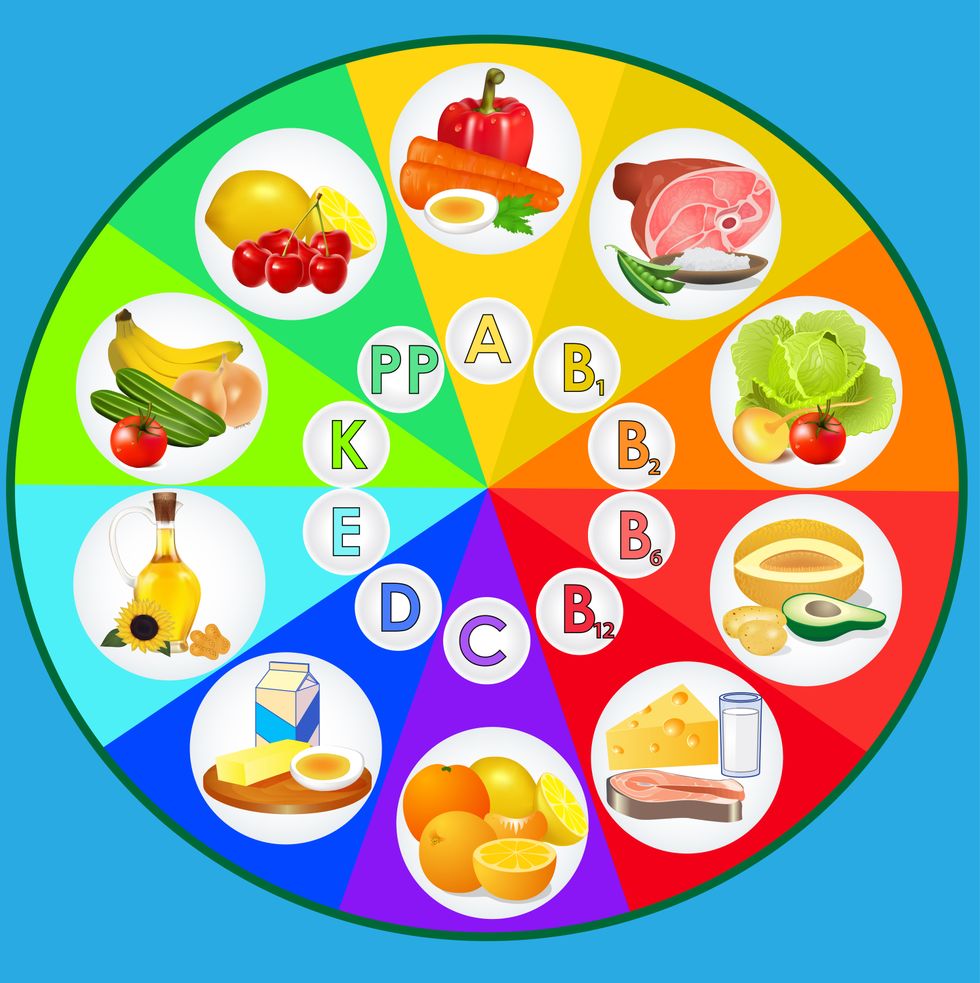Ever since we can remember, our parents and doctors told us to make sure, we are getting enough vitamins every day. Did anyone ever mention to you why we need these vitamins? Sure they are good for us, but how are they actually helping? How much of these vitamins do we even need in a day? Can’t we just stick to our gummy vitamins and call it a day? I’m about to break down this hefty list of vitamins for you one by one including what they do, how much we need, and where do get them. There are 13 essential vitamins we need to obtain from our diet, and they are all critical for just maintaining proper body function.
Vitamin A
Vitamin A is a fat-soluble vitamin meaning it dissolves in fat and acts on our body in a certain fashion. Vitamin A is super important for maintaining proper vision, skin, and brain function. Beta-carotene, which eventually forms vitamin A, acts as an antioxidant, which essentially helps to prevent plaque, build up in the blood vessels. Lack of vitamin A can lead to poor eyesight and increase risk of atherosclerosis. An average adult needs about 700 micrograms per day. Some good sources of vitamin A are carrots, sweet potato, spinach, berries. Now you know why carrots are good for your eyes!
Vitamin B(s)
There are actually multiple B vitamins. B12, niacin, thiamin, and riboflavin are the most common vitamins. In general, they are water-soluble and actually form our DNA in our body. It is also important for maintaining proper nervous system function. Lack of B vitamins intake can lead to anemia (low red blood cell count), fatigue, and poor muscular coordination. Each B vitamin needs a different daily intake amount. Foods with high vitamin B content are legumes, fish, eggs, and whole grains.
Vitamin C
Vitamin C is a water-soluble vitamin, and it functions as a key player in our immune system. It functions as an antioxidant, which helps prevent chronic inflammation, and in general acts to help repair damaged tissue in our bodies from when we sustain injuries or infections. Lack of Vitamin C causes increased risk for chronic disease and could contribute to a weaker immune system. The recommended daily intake for vitamin C is 75 mg a day. Vitamin C rich foods are fruits, and leafy green vegetables.
Vitamin D
Vitamin D is known as our sunshine vitamin because we can get this from the sun! It is also a fat-soluble vitamin we can get in our diet. Vitamin D is crucial for bone health. It helps the body absorb calcium which ultimately hardens and forms strong bones. Lack of vitamin D can lead to trouble with bone density, and in extreme cases can cause rickets in children. This disease causes bones to form improperly. The recommendation is 400 mg. You can get it from good old sunshine, fatty fish, and dairy.
Vitamin E
Vitamin E is a fat-soluble vitamin that functions as an antioxidant as well. It helps build new red blood cells and enhance the immune system. Adequate intake of this vitamin can help prevent a lot of chronic diseases like cardiovascular disease, dementia and even cancer. Lack of Vitamin E tends to be rare but can cause nervous tissue malfunction and increase the risk of said chronic diseases. The recommended daily intake for vitamin E is 15 mg daily. So great food sources for this vitamin are dark leafy veggies, nuts/seeds, and fish!
Vitamin K
Last but not least, Vitamin K is a fat-soluble vitamin that plays a critical role to help with blood clotting after an injury. Also, it helps form important proteins needed to build bones. Without enough Vitamin K you will have problems with poor blood clotting and it can also lead to osteoporosis as the proteins to build and maintain bone are not available. The daily recommendation for Vitamin K intake is around 90 micrograms for adult women and around 125 micrograms for adult men. Important food sources of vitamin K are dark, leafy vegetables, legumes and fortified breakfast cereals.
Now you know the ABC’s of vitamins and all the important roles they play in our body. Although, these micronutrients don’t supply us with direct energy, they are needed to metabolize our energy sources (fats, carbs, and proteins) so without them we could function properly. Don’t underestimate the power of Vitamins! It’s overall best to get your vitamins from a balanced diet full of whole foods, but if you are consistently unable to meet these recommendations on a daily basis, a vitamin supplement is good option. I do not advise taking a vitamin supplement instead of getting them from whole foods, however.
As always, these statements are general opinions based on background knowledge, but everyone has different needs based on individual health status. Be sure to keep an open communication with your doctors as they can give you official recommendations.



















